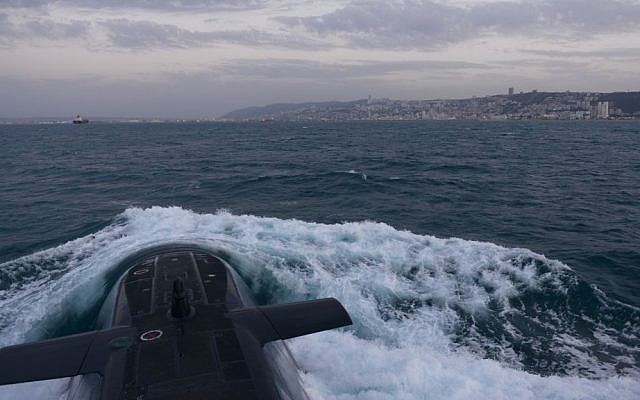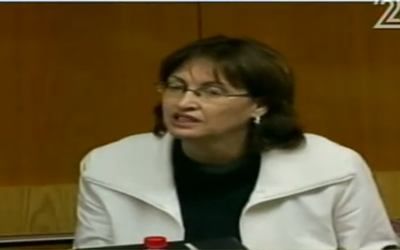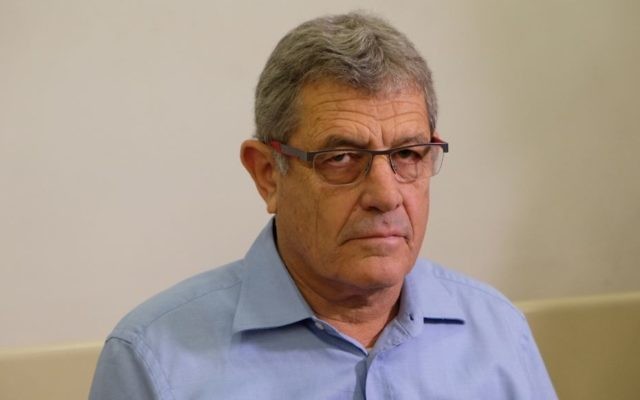Interrogation of ex-cabinet member and a senior National Security Council official follows 6 arrests as part of investigation into naval vessel purchases from Germany

A former minister was questioned by police Monday morning in connection with an expanding corruption probe into a multi-million-dollar purchase of naval vessels from Germany that has implicated several senior political and military officials.
The former minister, whose name was withheld from immediate publication by a gag order, was questioned at the police’s anti-corruption unit Lahav 433 in Lod, police said in a statement that also denied earlier false reports that a sitting minister was interrogated.
A former senior National Security Council official was also being questioned Monday in connection with the affair, which police have dubbed Case 3000, the statement said.
On Sunday evening it was reported that former deputy head of the National Security Council Atalia Rosenbaum, who served as the number two on the NSC from 2009 to 2010, was questioned 10 days ago as part of the probe on suspicion of mediation for bribery. After her interrogation she was released under restricted terms.
Earlier Sunday, six suspects were arrested in police raids including David Sharan, who served as Prime Minister Benjamin Netanyahu’s bureau chief from late 2014 to 2016, and who is suspected of bribe-taking, fraud, breach of trust and conspiring to commit a crime. Also arrested was senior reserve IDF officers and strategic adviser Nati Mor, who has worked with several senior government officials.

Rosenbaum is suspected of leaking information from NSC meetings to Miki Ganor, the local representative of German shipbuilder ThyssenKryupp. After being identified as a key suspect in the case, Ganor turned state’s witness in July.
Also among the suspects detained on Sunday was a former commander of the elite naval commando unit Shayetet 13, whose detention was extended by four days. Although the court rejected a request by his legal representative that he not be identified in the media, it agreed to maintain a blackout on his name for 24 hours while an appeal is filed.
Investigators suspect that Ganor, along with former National Security Council deputy head Avriel Bar-Yosef, paid bribes in connection with the decision to buy three submarines from ThyssenKrupp, despite opposition from the Israeli Defense Ministry.
They also reportedly influenced decisions to buy naval corvettes to protect Israel’s offshore gas fields and awarded ThyssenKrupp a contract to service other naval vessels.

While Netanyahu is not suspected in the case, his personal lawyer, David Shimron, has been questioned several times by Lahav 433, the police anti-corruption unit.
Ganor has reportedly claimed that Shimron (who was also his attorney) was to receive 20 percent of his own commission of $45 million. Shimron was hired by Ganor to negotiate the ship and submarine purchases.
In a statement given to his attorneys, Shimron reportedly denied he was to receive a cut from the deal beyond his legal fees.
When he turned state’s witness, Ganor was suspected of fraud, money laundering and conspiracy to commit a crime. He has reportedly been transferred to a police safe house.
As reported by The Times of Israel
